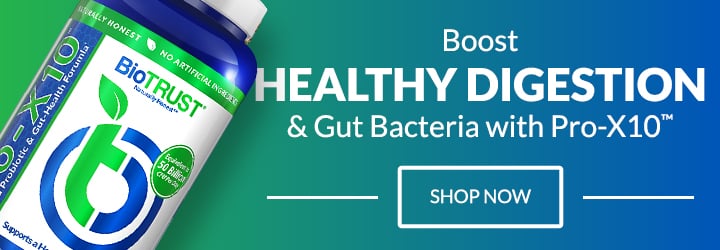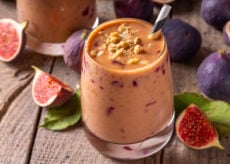The Not-So-Sweet Side Effects of Artificial Sweeteners

Sugar. It’s the bane of many a weight-loss program. So sweet. So delicious. So tempting. And so calorie dense, nutrient poor, and unhealthy.
But how can you possibly give up all sweet treats?
Marketers from many companies want you to believe you can have your cake (…and your soda…and your cookies…) and lose weight too. All you have to do is replace sugar and sugar-sweetened foods with any number of popular artificial sweeteners (from sucralose to aspartame to acesulfame potassium, or AceK, to saccharin, and many more), and you’ll get to enjoy the sweetness without the excess calories.
Despite compelling advertisements stating their products taste like sugar with none of the calories and none of the guilt, rest assured, these chemicals are anything but natural and may be just as likely—and in some cases, more likely—as sugar to prevent you from reaching your goals.
Artificial Sweeteners and Weight Loss
While animal studies have linked artificial sweeteners to weight gain and obesity, a recently published provides evidence that artificially-sweetened diet soft drinks may have a negative impact on a weight-loss program. In the study, which had no financial ties to the beverage industry and was published in the American Journal of Clinical Nutrition, researchers from the University of Nottingham assigned 62 women, who regularly consumed diet beverages, to one of two groups. Half of the women were instructed to replace zero-calorie, artificially-sweetened beverages (i.e., diet sodas) with water after their main meal (i.e., lunch), while the other half continued to drink diet sodas. The women in the latter group drank only one diet soda per day after lunch.
The researchers tracked the progress of the women for 24 weeks, and they were all instructed to follow the exact same weight-loss program including a reduced-calorie diet. As expected, at the end of the trial, all the women lost a significant amount of weight. However, the women who replaced diet beverages with water lost, on average, 16% more weight than the women who drank diet sodas—and remember, they only drank one diet beverage per day. Not only that, the women who drank water experienced improvements in their insulin sensitivity and carbohydrate tolerance that were 70% and 42% greater, respectively, than the group who drank diet beverages.
This study provides evidence that replacing artificially-sweetened diet beverages with water may lead to greater weight management and metabolic benefits during a weight-loss program.
Gut-Wrenching Side Effects
You may also be surprised to learn that one of the most common sweeteners, sucralose, actually contains chlorine. Yes, the same chlorine that goes in swimming pools. Just like chlorine kills off micro-organisms in swimming pools, sucralose may kill off healthy bacteria that live in your gut. That’s healthy bacteria that’s vitally important to virtually every aspect of your health.
Recently, a study at Duke University confirmed this very finding. The researchers found that animals fed sucralose—in realistic amounts well within the FDA’s safety limits—for 12 weeks experienced a significant reduction in the amount of their “good” gut bacteria. Even after a 12-week recovery period, the quantity of beneficial micro-organisms remained significantly depressed.
Here’s a direct quote from that study:
“Sucralose suppresses beneficial bacteria and directly affects the expression of the transporter P-gp and cytochrome P-450 isozymes that are known to interfere with the bioavailability of nutrients. Furthermore, these effects occur at doses that contain sucralose levels that are approved by the FDA for use in the food supply.”
Did you know that your digestive system houses over 70% of your immunity, which relies heavily on a healthy balance of gut bacteria? In fact, there are more than 100 TRILLION living micro-organisms in your gut that control many aspects of your health, and due to things like artificial sweeteners, many people have created a substantial unhealthy imbalance of gut bacteria(called “gut dysbiosis”).
Here are some of the consequences that can result from gut dysbiosis if left unaddressed:
- Bowel irritation and digestive discomfort
- Skin issues
- Fatigue and low energy levels
- Lowered immune response
- Difficulty losing weight
- Poor carbohydrate management and suboptimal metabolic function
Perhaps you’re thinking, “Oh, that’s just one sweetener.” Not so fast. Another study published in the journal Nature found that humans consuming the artificial sweetener saccharin for just five days resulted in gut dysbiosis as well as reductions in carbohydrate tolerance.
The Key to Beating Dysbiosis
It’s not all bad news, however. In fact, the great news is that you can actually supplement with healthy bacteria (more commonly known as probiotics), which support a healthy balance of gut bacteria and help your gut battle numerous threatening challenges, such as artificial sweeteners, aging, environmental factors, traveling, stress, poor food choices, and more. Research is now suggesting that supplementing with a quality probiotic supplement daily may:
- Help the immune system function properly
- Keep harmful micro-organisms in check
- Support healthy brain function
- Aid digestion, including breaking down difficult-to-digest foods
- Support healthy weight management
- Aid in nutrient absorption
Unfortunately, not all probiotics are created equally:
You may not know this, but research has shown that after just one year on the shelf in a sealed bottle at room temperature, on average, only about 40% of many store-bought probiotics (which are delicate living organisms that are sensitive to heat, light, moisture, and acid) survive. What’s more, due to the harsh environment of the stomach, another 80% of the remaining live probiotic cells may be killed off before they reach your gut (the “final destination” they must reach alive and well in order to provide you with their beneficial properties).
Furthermore, many products contain probiotics that are already dead within days or weeks of bottling due to poor manufacturing and storage practices that expose the cultures to high heat. In other words, a traditional probiotic supplement could be virtually worthless by the time you take it—what a waste of time and money.
Avoid the Artificial Sweeteners
Despite how widely available artificial sweeteners are and the overwhelming number of products they’re found in, the unintended consequences can be downright frightening and more likely to lead to a lack of success than the “sweet” benefits that savvy marketers may lead you to believe.
So, the next time you’re looking for a sweet treat, consider your gut and the tremendous importance it plays in your overall health. Instead, reach for a delicious piece of whole, low-sugar fruit like strawberries, raspberries, kiwi, or apples, or try a snack sweetened with a truly natural low-calorie sweetener like stevia leaf extract.







